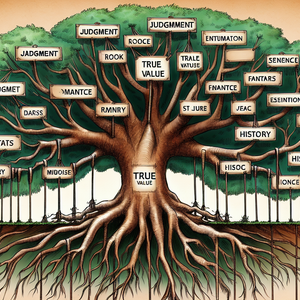Beyond the Paycheck: The True Value of a Nuclear Medicine Technologist

Nuclear medicine technologists play a pivotal role in modern healthcare, specializing in the administration of radioactive drugs and conducting imaging procedures crucial for diagnosing and treating a wide array of medical conditions. Working in tandem with physicians and patients, these professionals utilize advanced imaging technologies, such as positron emission tomography (PET) and single-photon emission computed tomography (SPECT), to produce high-quality images that offer vital insights into a patient's health status. The complexity, responsibility, and direct impact of their work significantly contribute to job satisfaction and a sense of professional pride.
Impact on Patient Care
One of the most profound rewards of being a nuclear medicine technologist is the direct impact these professionals have on patient care. Their work is often crucial for diagnosing diseases at an early stage, which can lead to timely and effective interventions. Many technologists express a deep sense of fulfillment from knowing their efforts contribute to saving lives and improving health outcomes. For instance, a study from the Society of Nuclear Medicine and Molecular Imaging highlights that early diagnosis through nuclear imaging techniques can drastically improve survival rates for conditions like cancer. This intrinsic motivation fosters higher job satisfaction, as the ability to make a meaningful difference in patients' lives serves as a compelling incentive.
Opportunities for Professional Development
The field of nuclear medicine is characterized by rapid advancements in technology and techniques, necessitating continuous education and training. Nuclear medicine technologists have access to numerous professional development opportunities, such as workshops, certifications, and conferences. This ongoing education not only enhances their technical skills but also fosters a sense of accomplishment and growth, which significantly contributes to their overall job satisfaction. The chance to stay at the forefront of medical technology allows these professionals to feel engaged and invested in their careers.
Collaborative Work Environment
Collaboration is a cornerstone of the healthcare industry, and nuclear medicine technologists often function as integral members of multidisciplinary teams that include physicians, nurses, and other healthcare professionals. This collaborative work environment promotes strong relationships among colleagues, fostering a sense of community and belonging within the workplace. The support and camaraderie among team members can enhance job satisfaction, making the work environment not only more enjoyable but also more productive. Research indicates that positive workplace relationships correlate with higher job satisfaction and performance, making collaboration a vital aspect of the nuclear medicine technologist's role.
Job Stability and Demand
The healthcare sector, particularly in the realm of nuclear medicine, is witnessing a notable increase in demand due to an aging population and advancements in medical technology. According to the U.S. Bureau of Labor Statistics, the job outlook for nuclear medicine technologists is projected to grow by 7% from 2021 to 2031, faster than the average for all occupations. This stability provides professionals with a sense of security in their positions, reducing stress levels associated with job uncertainty. The assurance of job stability contributes significantly to overall job satisfaction, as professionals feel secure and valued in their roles.
Flexibility and Work-Life Balance
Many nuclear medicine technologists enjoy flexible schedules, which enable them to maintain a healthy work-life balance. The ability to adjust work hours or even work part-time can significantly enhance job satisfaction, allowing these professionals to pursue personal interests, spend quality time with family, or fulfill other commitments outside of work. A study published in the Journal of Occupational Health Psychology emphasizes the importance of work-life balance in promoting job satisfaction and reducing burnout. As the demand for work-life balance continues to rise in the modern workforce, this flexibility has become a compelling factor for many in the profession.
While salary is undoubtedly an important consideration for nuclear medicine technologists, the non-monetary benefits associated with this profession profoundly impact overall job satisfaction and career fulfillment. The ability to make a difference in patient care, access to continuous professional development, thrive in a collaborative work environment, enjoy job stability, and achieve a flexible work-life balance all contribute to the rewarding nature of this career. As the healthcare landscape continues to evolve, it is essential for both current and aspiring nuclear medicine technologists to recognize that their value extends far beyond the paycheck. Embracing the intrinsic rewards of their profession can lead to a more fulfilling and satisfying career in nuclear medicine.
Radiation Safety Officer
Hospitals, research institutions, and government agencies
Core Responsibilities
Develop and implement radiation safety protocols to protect staff and patients.
Conduct regular safety audits and assessments to ensure compliance with regulations.
Provide training to employees on safe handling and disposal of radioactive materials.
Required Skills
Strong knowledge of radiation regulations and safety practices.
Experience in risk assessment and emergency response planning.
Certification in radiation safety (e.g., Certified Radiation Safety Officer).
Nuclear Medicine Physician
Hospitals, specialized imaging centers, and academic medical institutions
Core Responsibilities
Interpret imaging results and diagnose medical conditions based on nuclear imaging studies.
Collaborate with nuclear medicine technologists to optimize imaging protocols.
Provide consultations and develop treatment plans involving radiopharmaceuticals.
Required Skills
Medical degree with specialized training in nuclear medicine.
Proficiency in interpreting PET and SPECT scans.
Strong communication skills to interact with patients and healthcare teams.
Medical Imaging Sales Representative (Nuclear Medicine)
Medical device manufacturers and imaging equipment companies
Core Responsibilities
Promote and sell nuclear imaging equipment and supplies to healthcare facilities.
Conduct product demonstrations and provide training to medical staff.
Build and maintain relationships with key decision-makers in hospitals and clinics.
Required Skills
Background in medical technology or healthcare sales.
Excellent interpersonal and negotiation skills.
Ability to understand and explain complex technical information.
Clinical Research Coordinator (Nuclear Medicine)
Research hospitals, pharmaceutical companies, and academic institutions
Core Responsibilities
Manage clinical trials involving nuclear medicine procedures and radiopharmaceuticals.
Ensure compliance with regulatory requirements and ethical standards.
Coordinate patient recruitment, data collection, and analysis.
Required Skills
Knowledge of clinical trial protocols and research methodologies.
Strong organizational and project management skills.
Familiarity with Good Clinical Practice (GCP) guidelines.
Radiologic Technologist (Nuclear Medicine Specialty)
Hospitals, outpatient imaging centers, and diagnostic laboratories
Core Responsibilities
Perform diagnostic imaging procedures using radioactive materials.
Assist in patient positioning and ensure quality of imaging studies.
Maintain imaging equipment and adhere to safety protocols.
Required Skills
Associate’s degree in radiologic technology with specialization in nuclear medicine.
Certification from the American Registry of Radiologic Technologists (ARRT).
Strong attention to detail and patient care skills.


